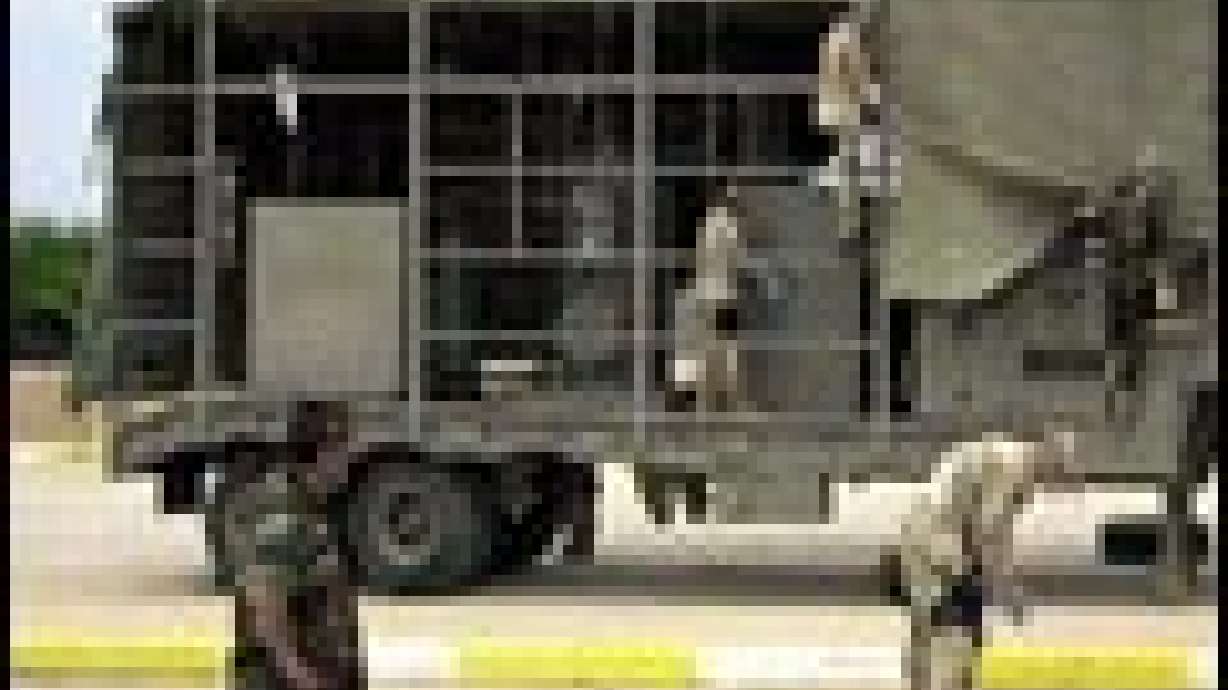Estimated read time: 3-4 minutes
This archived news story is available only for your personal, non-commercial use. Information in the story may be outdated or superseded by additional information. Reading or replaying the story in its archived form does not constitute a republication of the story.
WASHINGTON (AP) -- As a new U.S.-led team of international experts is heading to Iraq to intensify the search for weapons of mass destruction, President Bush says banned armaments already have been found -- even though administration officials have said they have only located mobile laboratories suspected of producing them.
In an interview with Polish television, Bush provided no details, but he followed his statement with comments about the labs. It was not clear whether he was equating the labs with weapons.
The U.S. Army general heading the effort, Maj. Gen. Keith Dayton, said Friday that his team would change the focus from sites identified as suspicious before the war and instead concentrate on areas where documents, interviews with Iraqis and other new clues suggest biological or chemical weapons could be hidden.
The shift comes amid growing questions from allies and some members of Congress about why no actual chemical or biological weapons have been unearthed. Bush said Iraq had chemical and biological weapons, as well as a nuclear weapons development program, and used their elimination as justification for invading Iraq and overthrowing its government.
In the Polish TV interview, conducted Thursday before Bush left for a seven-day trip to Europe and the Middle East, the president cited the two equipment-filled trailers found in northern Iraq that American intelligence agencies say were mobile biological weapons production facilities.
Bush and other administration officials say the finds show Iraq did indeed have clandestine programs to make germ weapons.
"We found the weapons of mass destruction. We found biological laboratories," Bush told Polish television. "They're illegal. They're against the United Nations resolutions, and we've so far discovered two.
"And we'll find more weapons as time goes on. But for those who say we haven't found the banned manufacturing devices or banned weapons, they're wrong, we found them," Bush said.
Dayton, who will head the Iraq Survey Group, leaves Monday for Baghdad. The team of about 1,400 experts from the United States, Great Britain and Australia will take over the weapons search from a smaller U.S. military team.
Before the war, the United States drew up a list of more than 900 "suspect sites" where weapons of mass destruction or evidence of such programs might be found. Military teams have visited more than 200 of those sites without finding any actual weapons.
In response to questions about the credibility of U.S. intelligence, CIA Director George Tenet released a rare statement Friday defending his agency.
"Our role is to call it like we see it -- to tell policy-makers what we know, what we don't know, what we think, and what we base it on," Tenet said. "The integrity of our process was maintained throughout and any suggestion to the contrary is simply wrong."
Dayton, a top official in the Defense Intelligence Agency, said he remains convinced his team will find weapons of mass destruction in Iraq. He said he believed the information the United States had before the war indicating Iraq had the banned weapons and continues to believe that.
His group will begin a two-week transition period to take over the weapons hunt in Iraq no later than June 7, Dayton said.
The group includes both military and civilian experts, including former United Nations weapons inspectors. Stephen Cambone, the Pentagon's top intelligence official, said he did not know whether the United States would agree to have U.N. inspectors return to Iraq.
Critics say the Bush administration should let U.N. inspectors back in.
Cambone and Dayton said they did not know why no chemical or biological weapons have been found so far. Dayton echoed comments by Defense Secretary Donald H. Rumsfeld earlier in the week speculating that Iraq could have destroyed such weapons before or during the war.
"These things could have been taken and buried. They could have been transferred. They could have been destroyed," Dayton said. "That doesn't mean they weren't there in the first place."
(Copyright 2003 by The Associated Press. All Rights Reserved.)








